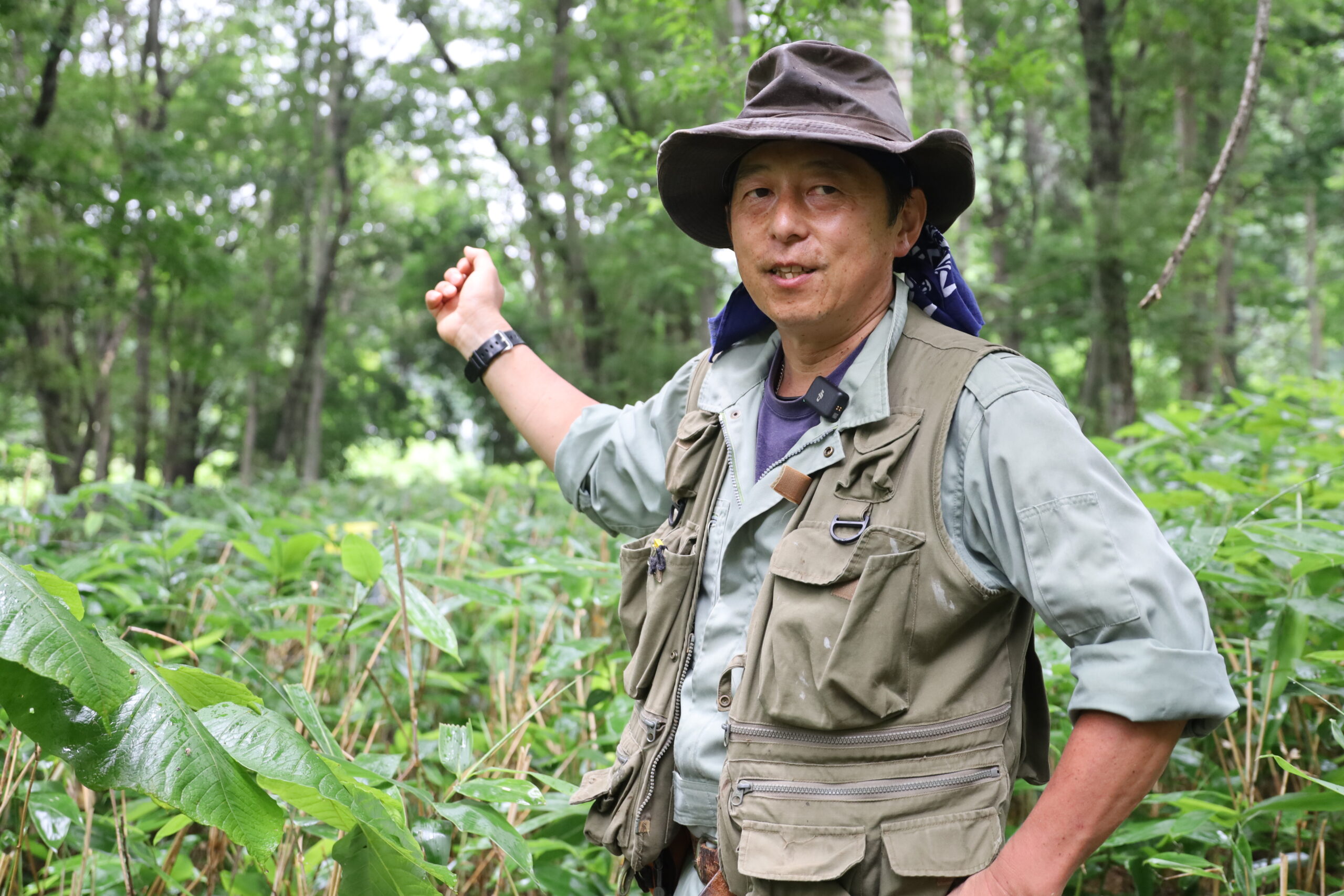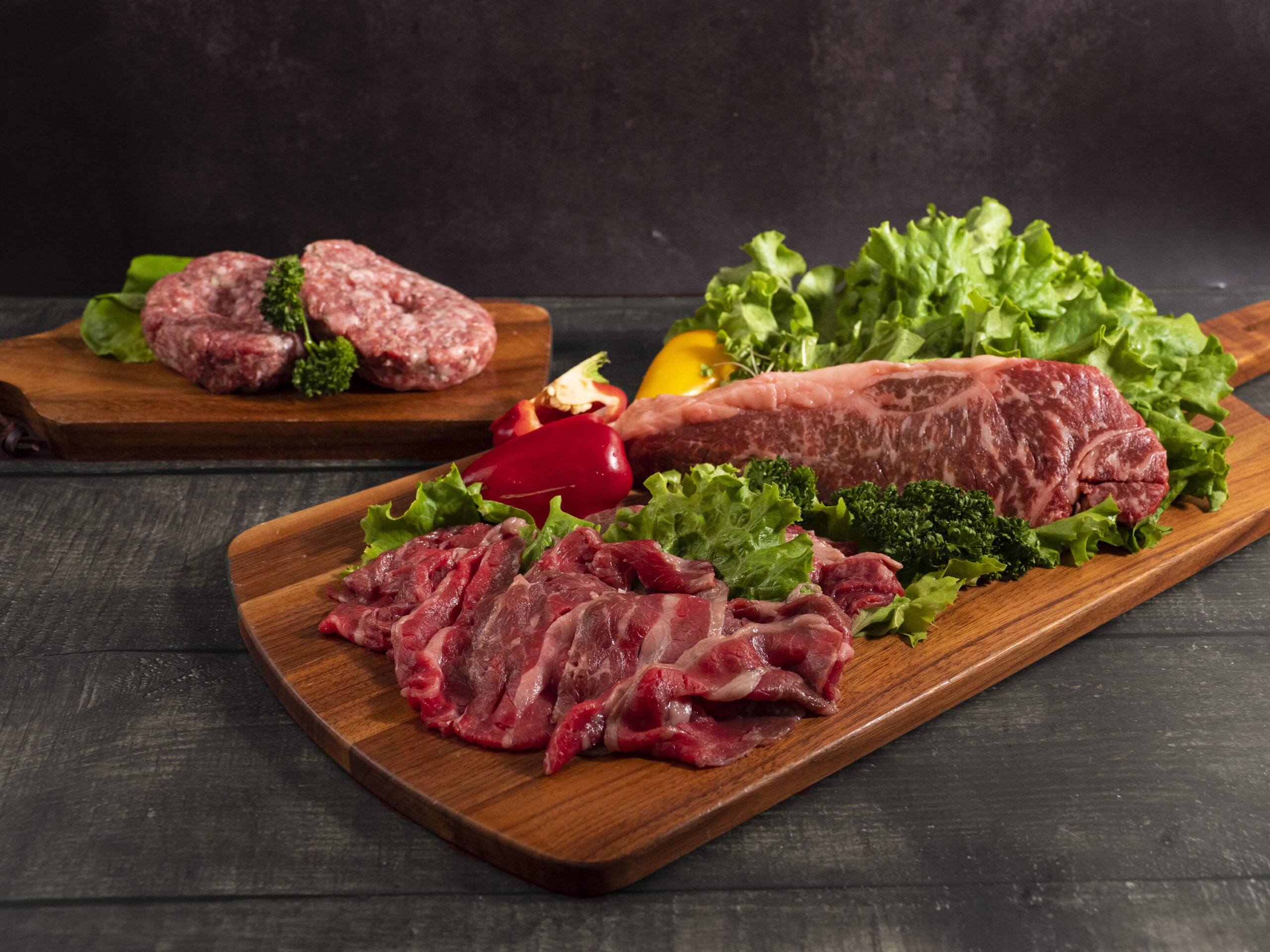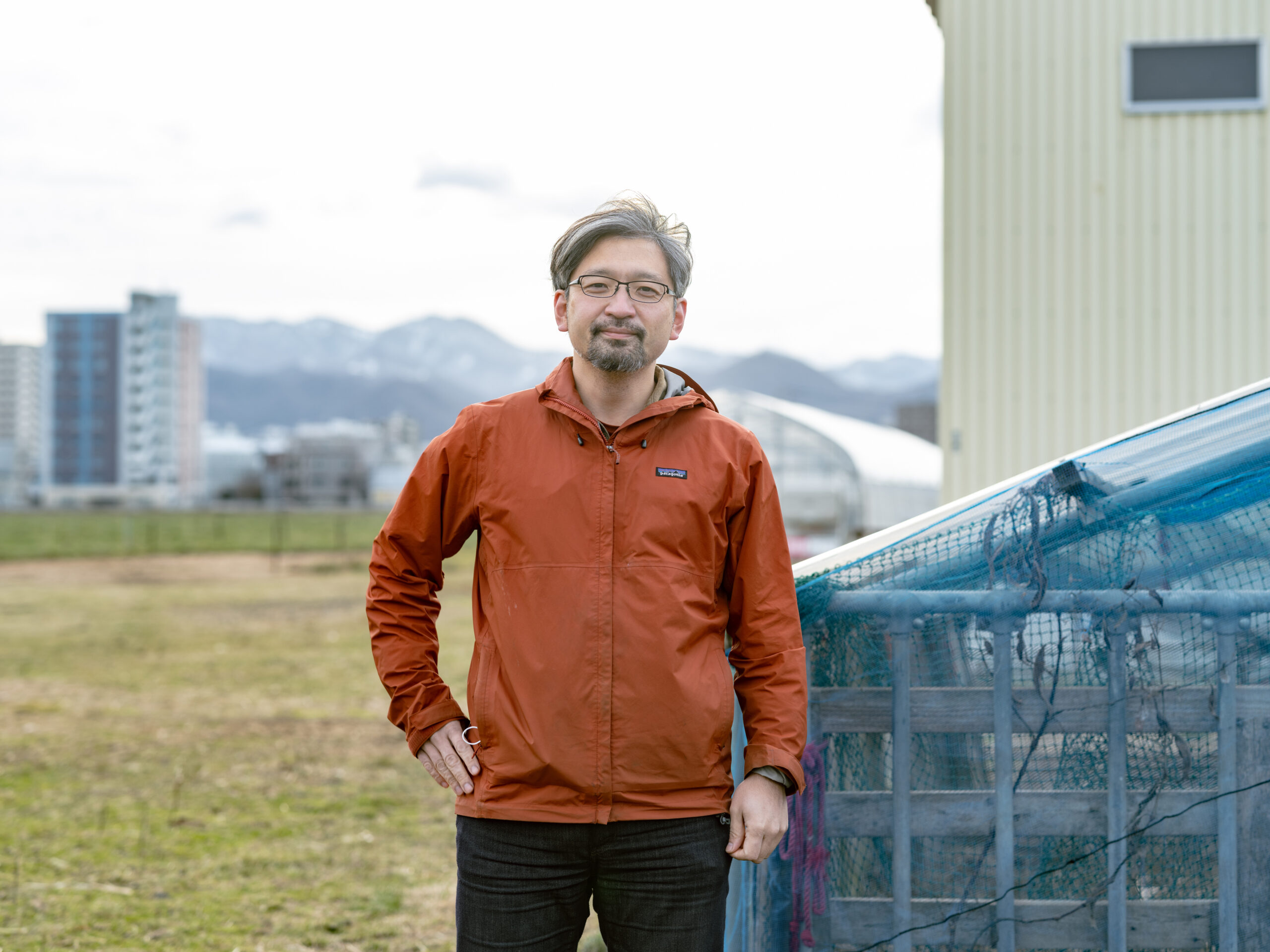Food Culture Cultivated by Hokkaido University, Chapter 2: The Hokudai Shorthorn
University News | October 23, 2024
This article was published in the Spring 2024 issue of Litterae Populi. The full issue can be found here.
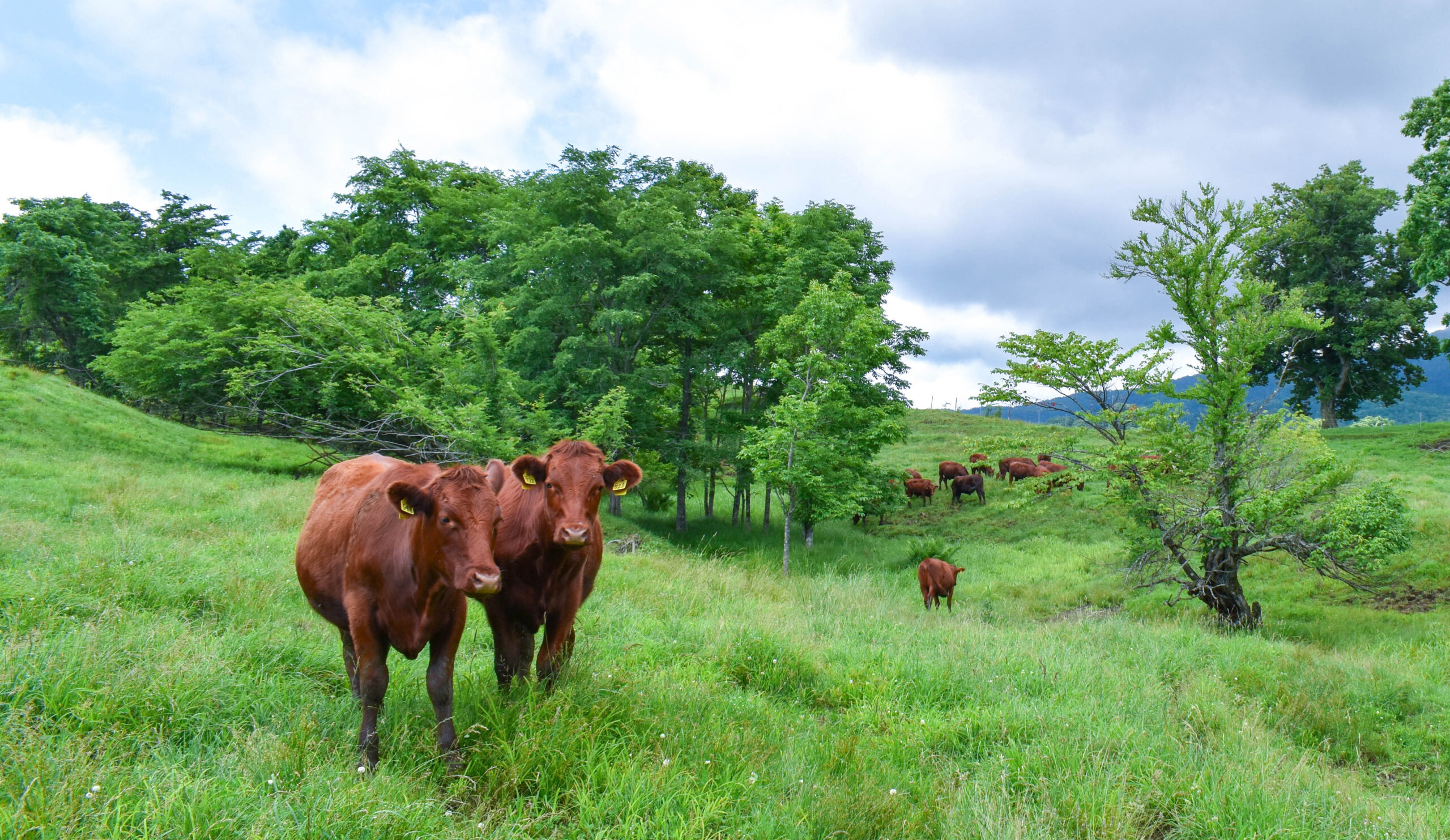
Hokudai Shorthorn cattle graze at the Shizunai Livestock Farm (Courtesy of Field Science Center for Northern Biosphere)
The Japanese Shorthorn—a rare breed of Wagyu—that is reared at the Shizunai Livestock Farm, was branded the Hokudai Shorthorn in 2021. Celebrated as “an edible research outcome,” it has a rich flavor that has won the hearts of many people.
Rare cattle reared with traditional husbandry methods
The Shizunai Livestock Farm, known for rearing the Hokudai Shorthorn, is located in Shinhidaka Town, about 150 km southeast of the Sapporo Campus. Covering more than 470 hectares, the farm is home to approximately 150 head of beef cattle and about 100 horses. Since its establishment in 1950, the farm has dedicated itself to a broad array of educational and research activities, extending beyond livestock farming to include grassland management and environmental conservation.
Japan relies on imported feed for over 90% of its beef cattle production. In contrast, the Shizunai Livestock Farm leverages its extensive terrain to enable cattle to graze freely outdoors from spring to autumn. They are raised exclusively on pasture grass without the use of any grain feed. In winter, they are fed mainly on farm-harvested hay and silage, with only very small amounts of supplementary grain. The manure from the cowsheds is recycled as compost for the pasture and fodder fields. Associate Professor Masahito Kawai, director of the Shizunai Livestock Farm at the Field Science Center for Northern Biosphere, says, “Domestic herbivores convert grass, which is indigestible by humans, into meat and milk. Our research is guided by a concept passed down for generations that focuses on raising herbivores in ways that make the most of that ability.” More than 98% of the Wagyu cattle raised domestically are of the Japanese Black breed, making the Japanese Shorthorn a truly rare breed. Japanese Shorthorn are reared solely on grass, including wild grass, and have an exceptionally high capacity for milk production among beef cattle. They are well-suited for grazing, because calves allowed to graze with their mothers can be raised on milk alone. Current research at the farm includes the study of livestock farming technologies aimed at minimizing stress on cattle during transitions from pasture to cowshed and back at the change of seasons, to increase beef cattle production efficiency.
Savoring research achievements and thestories of such achievements
Hokudai Shorthorn beef once sold at incredibly low prices as “Hokkaido-produced Shorthorn,” without any recognition of its rearing by Hokkaido University. The turning point came when a company that had been purchasing and selling Shorthorn beef from Shizunai Livestock Farm suggested selling it at its appropriate value as beef cattle raised by Hokkaido University. This suggestion sparked discussions in partnership with the Institute for the Promotion of Business–Regional Collaboration, among other organizations, about branding the beef.
Since the beef was branded in 2021, the processed meat has been available for purchase online and through other channels. It is also offered at Café de Gohan, on the Sapporo Campus, and in nearby restaurants. Mainly pasture-reared, the Hokudai Shorthorn is known for its lean meat with minimal marbling, which makes it refreshingly easy to eat. The meat’s rich umami and aromatic flavors intensify with each bite.
Former Hokkaido University employee Manabu Sasaki, who serves as president of Wacca Inc., a company selling processed Hokudai Shorthorn beef, says, “I’ve been a fan of the beef from the Shizunai Livestock Farm since the time it was sold only within the University. I want people to know about the availability of beef from cattle raised under traditional husbandry, and I want people to enjoy it along with its story.” Wacca Inc. actively participates in exhibitions related to the SDGs, the Yosakoi Soran Festival, the Sapporo Snow Festival, and other events, promoting the taste of Hokudai Shorthorn beef as well as research on sustainable livestock farming. Sasaki also supports students who want to offer Hokudai Shorthorn beef at the Hokkaido University Festival, by providing culinary guidance. He says: “Because I’m eager to see more students prepare Hokudai Shorthorn beef at the Hokkaido University Festival, I actively promote it to those who show interest. I aim to continue supporting communication between Hokkaido University and the local community, not only regarding food, but also regarding the dissemination of various research findings.”
Savor beef from the Hokudai Shorthorn and learn about stock farming
The branding of the Hokudai Shorthorn led to increased opportunities for Farm Director Kawai to be invited to speak at academic conferences and symposiums and to be featured in various media. Following the introduction of Hokudai Shorthorn beef to school lunches at all elementary and junior high schools in Shinhidaka Town, several elementary school students even visited the farm.
Kawai remarks, “I hope that eating beef from the Hokudai Shorthorn, which is raised differently and tastes distinctly different from the beef that’s usually eaten, will provide an opportunity for people to gain even a slight interest in livestock farming and livestock food products.” He also shares his vision for the future: “Some overseas universities have departments tasked with opening research farms to the public, with staff employed for this purpose. We hope that the Shizunai Livestock Farm will play a similar role, enabling us to welcome more visitors.” He believes that one of the farm’s charms is the way the Hokudai Shorthorn cattle blend into the mountain landscape. We may soon have more opportunities to witness this beautiful sight.
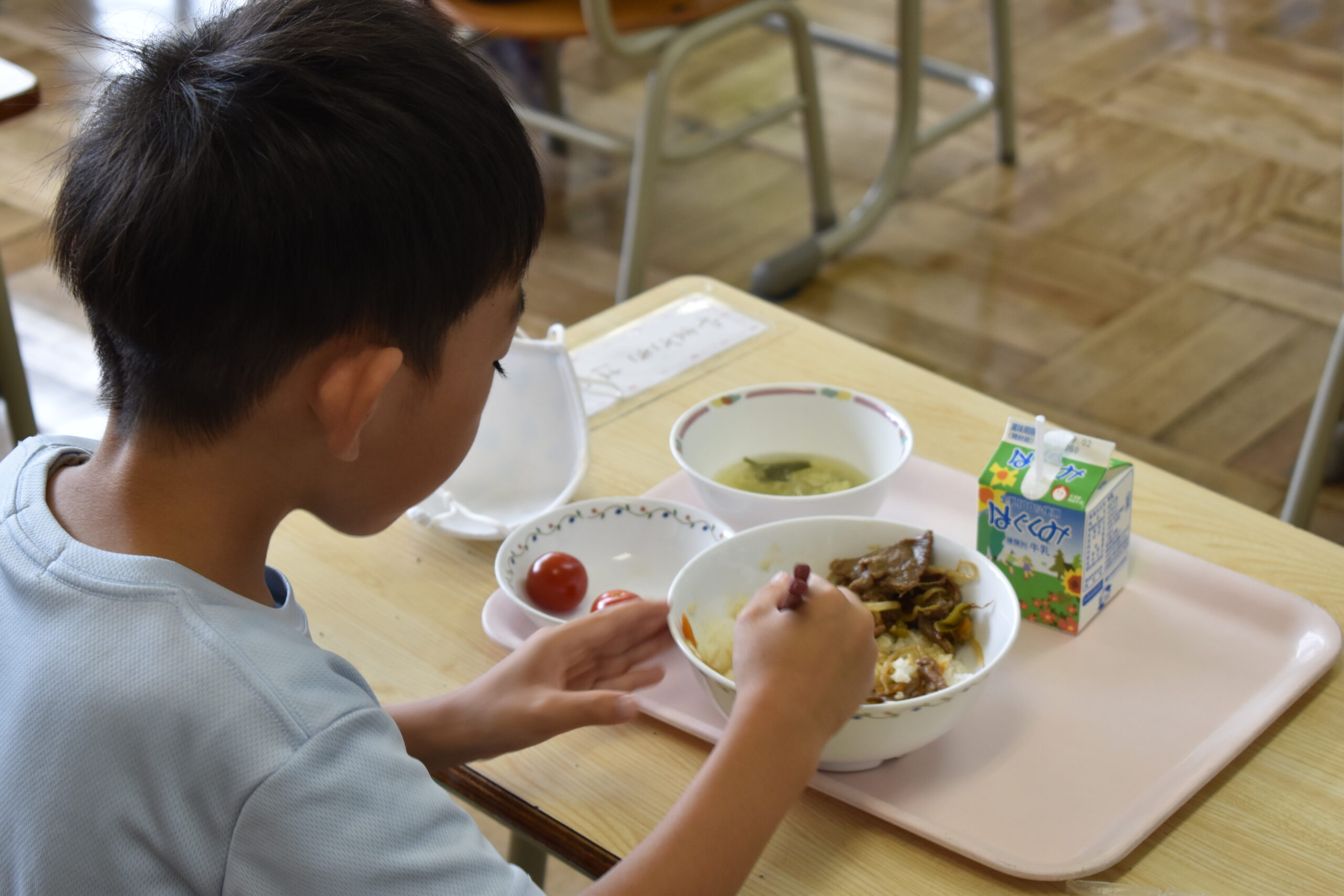
Hokudai Shorthorn beef was provided for school lunches at all elementary and junior high schools in Shinhidaka Town (Courtesy of Field Science Center for Northern Biosphere)
This article was published in the Spring 2024 issue of Litterae Populi. The full issue can be found here.

